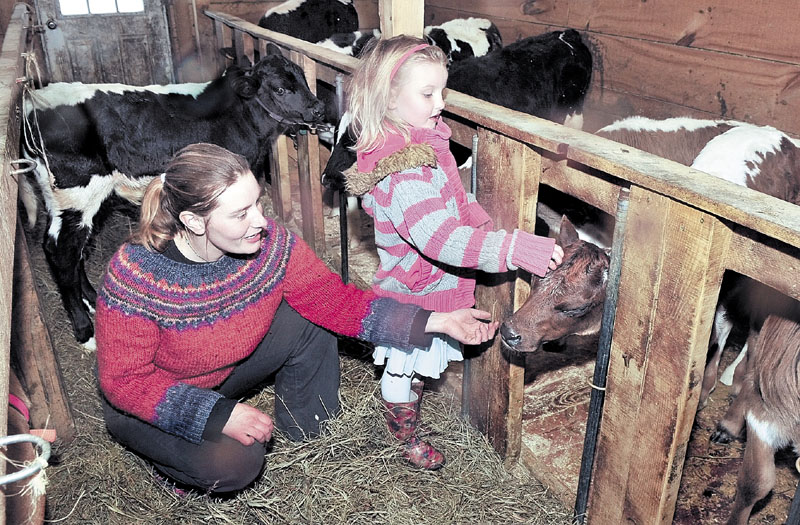SKOWHEGAN — Sarah Smith of Grassland Farm likes to talk about organic foods and the $36.6 million in sales it generates annually in Maine.
Smith, 29, will have plenty of opportunity to discuss all things organic Wednesday and Thursday when she travels to Washington D.C. to meet members of Congress.
“I’m excited,” Smith said Monday. “I’m certainly a little anxious — I feel confident in my ability to represent organic farmers.
“I feel like I’m going there with two hats — one to recognize organic farmers in Maine, and two, to represent our cooperative Organic Valley — we’re going to say we’re a $620 million a year co-op with over 700 members and we want the voice of that collective to be heard.”
Organic Valley is the marketing wing of the Wisconsin-based national cooperative Coulee Region Organic Produce Pool, or CROPP, of which Grassland Farm is a member.
Beginning Wednesday, five organic farmers from Georgia, Maine, New York, Oklahoma, and Wisconsin are scheduled to attend the Organic Trade Association’s policy conference and visit to Capital Hill. Group members, including Smith, will meet with lawmakers to discuss the benefits of their farm businesses on rural economies and on environmental and public health.
They will meet with members who sit on key agriculture and appropriations committees and subcommittees, according to a release from Maureen Wilmot, executive director of the Organic Farming Research Foundation.
“This event is a wonderful opportunity for members of Congress to learn from the organic farmers themselves as they really are the roots of the burgeoning $26 billion organic industry,” Wilmont said. “Organic farmers contribute to a diverse U.S. agriculture. Investing in their future will benefit both consumers and rural communities nationwide.”
Grassland Farm, off Malbons Mills Road, is a certified organic farm. Smith and her husband, Garin, 27, milk 40 organically raised dairy cows and produce organic, grass-fed beef and chicken as well as a wide range of seasonal vegetables. The couple has two children, ages 2 and 5.
Smith said organic farmers operate on about 41,000 acres of land in Maine.
“Organic agriculture has a huge impact on the state — it supports about 1,600 jobs,” she said. “The census said that organic farms support more jobs than conventional farms; there’s a lot more hand labor involved.”
Smith said Maine’s organic farmers tend to be young and are more likely to be women. Nationally, she said, conventional farmers are older men.
“I feel like women are caretakers and organic farming requires more of that stewardship — more of that caretaking,” she said. “Organic farms tends to be smaller farms and I think that’s more suited to a woman’s nature to tend and care for things.”
Smith said organic farmers in Maine are fortunate to have the support of MOFGA — the Maine Organic Farmers and Gardeners Association — and the various cooperative extension offices of the University of Maine.
Smith said organic vegetables and organic milk are much higher in nutrients than conventionally grown crops.
“There’s huge uprising of people caring about what they eat and where it comes from and what goes into it,” she said. “I think all of that has contributed to the growth of organic agriculture. There’s a lot of support from health care for preventative health and all of that starts with good eating habits and good nutrition.”
After her Washington trip, Smith said she will travel to Wisconsin, where she and her husband will receive a “Gen-O” Generation Organic award from Organic Valley. The award honors young leaders in the organic farming movement.
Send questions/comments to the editors.



